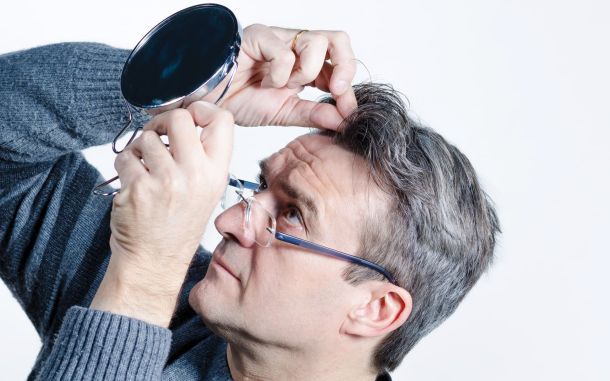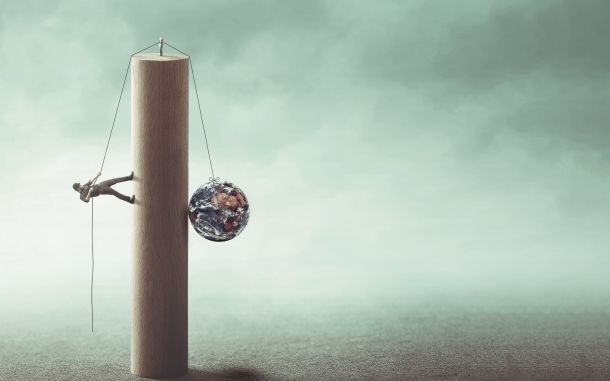Healing Through Gratitude

In This Article
-
Gratitude, happiness, and every positive emotion seemed to vanish the day my husband of twenty-one years passed away. How could I feel grateful about anything ever again when I lost my best friend, my confidante, my partner in everything?
-
During Jeff’s battle with cancer, I was grateful for every minute we had together. I was thankful for every positive test result. I was extremely grateful for the incredible teams of medical professionals that gave us more time together than we would have had without them.
Although we may not completely understand the meaning of gratitude when we’re young, it is one of the first things we are taught. As soon as we are able to speak, we are prompted to say please and thank you. What we do understand, at that point, is that these words have power. The word “please” will get us that cookie and “thank you” will make the giver smile and gush, possibly showing us, and our manners, off to anyone nearby.
As years pass, we start to understand the feeling that comes with gratitude. That bike you have been yearning for all year is sitting next to the Christmas tree: instant joy. Being led out to the driveway where your first car glistens in the sunlight with a big bow on its roof: elation and disbelief. These scenarios bring immediate gratitude to the receiver of the gift and that overwhelming feeling of joy is undeniable.
However, as we get older it is not material items we are most grateful for. It is the steady paycheck that pays the bills; a full refrigerator; the hugs from our children or the arrival of that new grandchild. It is the sight of our spouse walking through the front door after driving for hours through a dangerous snowstorm. Gratitude is easy to feel when life is good, but being grateful when life is full of struggles is a challenge. When you lose your job, or your home is in foreclosure, gratitude is the last thing you feel.
It is during the hard times in life that we need to find something, anything, to feel grateful for. I have always been a happy, appreciative person. The past few years have been difficult, but I tried my best, almost challenging myself to find something to be grateful for each day. However, this past August had me wondering if I would ever be grateful again. Gratitude, happiness, and every positive emotion seemed to vanish the day my husband of twenty-one years passed away. How could I feel grateful about anything ever again when I lost my best friend, my confidante, my partner in everything?
Two years ago, my husband, Jeff, went to the doctor with severe abdominal pain. After several tests, the diagnosis came back: bladder cancer. I had lost my mother to cancer twenty-three years earlier, and that was a word I hoped never to hear again. But we remained hopeful and were determined to beat it. We flew from Boise to Seattle, where he had a softball-size tumor, along with his bladder, removed. His recovery was amazing and a few months later he was able to return to work; two months later he was in remission. We were truly grateful, and we clung to that feeling with every breath.
When Jeff went back to work I began to do research for something I had been dealing with myself. A few years earlier, I started to develop a twitch under my eye. At first, I wasn’t alarmed since I had gotten them before, and they never lasted long. I did, however, become concerned when they began to last several minutes, even pulling up the side of my mouth. In my research, I learned of a rare neurological disorder called Hemifacial spasm (HFS). This is when a blood vessel compresses the facial nerve causing involuntary spasms. An appointment with a neurologist, along with an MRI, confirmed that I did have HFS. The most common treatment for this is Botox injections. However, they can include some unpleasant side effects and typically become ineffective over time. The only cure is surgery—extremely high-risk surgery. And since it is a rare disorder, trying to find a qualified, experienced neurosurgeon can be difficult. I decided to live with it for as long as I could, but aware that it was a progressive disorder.
Just when things had gotten back to normal, almost a year to the day of Jeff’s first diagnosis, his cancer returned. He began chemotherapy again and handled it amazingly well. He would get chemo Friday mornings and then go to work for eight, sometimes twelve, hours with no issues. Meanwhile, my condition worsened. My face began contorting to the point that the whole left side would spasm and lock into place, making it difficult to open my eye. This happened a few times a day to almost every hour. I could not read, write, or sleep. It also made it dangerous for me to drive. After finding a brilliant neurosurgeon and waiting until Jeff's chemo was completed, I had surgery. To this day, I am spasm-free. For that, I am eternally grateful.
But the hits kept coming! Five weeks after my surgery, I ended up in the emergency room needing a blood transfusion due to severe anemia. I ended up needing laparoscopic surgery for a bleeding ulcer. A week after my surgery, Jeff was admitted to the VA Medical Center's Intensive Care Unit for severe sepsis. Two weeks later was Christmas. Although we weren't able to have our usual Christmas celebration, we were grateful to be alive and home together.
In February, we were notified that our rental home was being sold, and we had to move at the end of our lease, May 4th. Luckily, a different property our landlords managed became available. In April, in the midst of packing, our eighteen-year-old cat became very ill and had to be put down. Ten days later, we lost our fifteen-year-old dog. Two weeks after that, the day before our move, Jeff's doctor found blood clots in his arm. He was put on blood thinners and not allowed to lift anything for months.
We moved into the new house and for the first six weeks, it was great. Then Jeff began having pain again. Between June and July, he was in and out of the hospital numerous times. But in July we were feeling very hopeful. There had been some positive results from an immunotherapy drug, specifically for bladder cancer. He started on that in July and did very well. At the beginning of August, he had his second treatment. That night he was admitted into the hospital, where he stayed for eighteen days. At that point, there was nothing more they could do, and he was then released to come home, with hospice. He passed away seven days later.
Was it difficult to find something to be grateful for during all of this? Yes. But it wasn’t impossible. In truth, when I focused on being grateful for something it was like taking a deep breath of fresh air. When I went through my HFS, I met a wonderful group of people living with the same condition. It can be a very isolating experience but this group of people showed me I wasn't alone. Also, through this group, I learned about the surgery and what to look for in a qualified surgeon. Without them, I would never have found that incredible neurosurgeon. For that I am grateful.
During Jeff's battle with cancer, I was grateful for every minute we had together. I was thankful for every positive test result. I was extremely grateful for the incredible teams of medical professionals that gave us more time together than we would have had without them. I was grateful that we had to move to a different house. The house we moved to is thirty minutes closer to the three different hospitals we frequented.
Although I would give anything to have Jeff back, I am grateful he is no longer in pain—physically, mentally, and emotionally. One of the many awful things cancer does, especially in the later stages, is that it robs a person of their dignity. He went from being a strong, capable, hardworking man to someone who was too weak to get himself dressed, stand up, or use the bathroom without help. When I think of those things, along with the many other negative aspects of the disease, I am grateful he is no longer going through that kind of suffering.
When Jeff was first home with hospice, I was cleaning him up. I did not have much training from the nurses regarding his care. I really didn't know what I was doing and I was afraid that I would hurt him. When I was done I stepped outside to catch my breath and wipe away tears I didn't want Jeff to see. There, standing in our driveway, were eight of our friends who came to visit with hugs and words of comfort. That week there were fifty people who came to visit and let Jeff know how much they loved him. These same people brought food, helped with his care, forced me to try to eat and sleep. They made Jeff laugh and shared stories of times that meant so much to him. For that we both were grateful. But the thing I am most grateful for is the twenty-two years I had with Jeff. Good or bad times, there is no one else I would rather have had by my side in this life.









